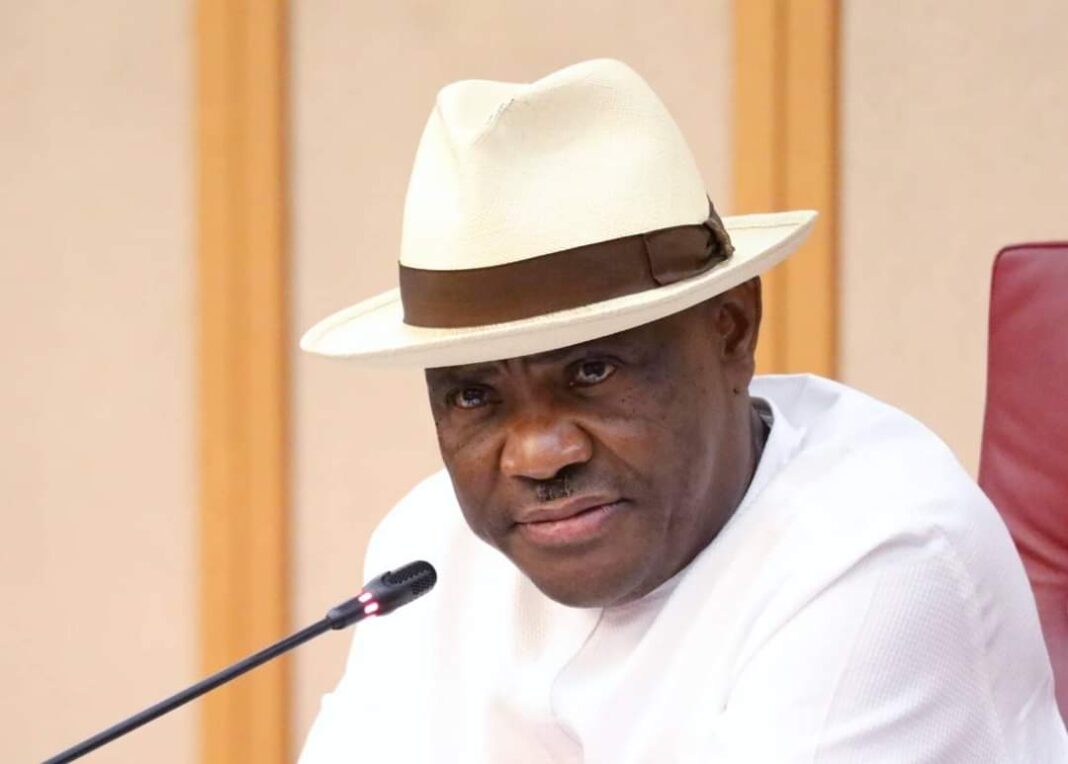Wike’s Aide Challenges Femi Falana’s Legal Credentials Amid Rivers Political Tensions
By HeadlineNews.News – April 22, 2025
Abuja, Nigeria – The political and legal tensions surrounding the ongoing crisis in Rivers State took a new dimension on Monday as Lere Olayinka, Senior Special Assistant on Public Communications to FCT Minister Nyesom Wike, launched a public critique of Femi Falana, SAN, one of Nigeria’s most prominent human rights lawyers.
In a strongly worded statement, Olayinka questioned Falana’s qualifications for the Senior Advocate of Nigeria (SAN) title, referring to him as an “arrangee lawyer” and challenging him to list landmark legal contributions justifying his elite legal rank. The comments come amid renewed national attention on the Rivers Assembly defection crisis, where Falana has served as counsel and public commentator.

“Apart from going on television to make noise, what has Falana contributed to the legal profession?” Olayinka queried. “Even the SAN he got, was it not an afterthought?”
Context: Falana’s Commentary on Rivers Crisis
Falana had previously stated on national television that the Supreme Court judgment referenced by Wike’s camp did not adjudicate on the legitimacy of the Rivers State House of Assembly’s leadership, particularly in relation to the defection of 27 lawmakers from the PDP to the APC.
However, Olayinka insists this is factually incorrect, citing a ruling by Justice Emmanuel Obile of the Federal High Court in Port Harcourt, which relied on the Supreme Court’s interpretation to dismiss a suit on the defection filed by the Labour Party.
Olayinka further questioned Falana’s interpretation of Section 96(1) of the 1999 Constitution, which states that the quorum of a House of Assembly must be one-third of all members. Falana, in a previous appearance, allegedly maintained that three lawmakers could conduct legislative business—despite a 32-member assembly.

Evaluating the Legal Weight
Femi Falana, SAN, is widely known for his decades-long advocacy on human rights and constitutional law, with a legal career spanning the courts, media, and civil society. He is a former president of the West Africa Bar Association (WABA) and a prominent member of Civil Liberties Organisation (CLO) and Campaign for Democracy (CD) during Nigeria’s military years.
Although not famed for commercial litigation or corporate law, Falana has represented countless victims of state abuse, defended freedom of the press, and spearheaded constitutional challenges with national implications. His critics, however, argue that legal activism and litigation are different paths, and elevation to the Body of Benchers or SAN status should be based on trial court performance and institutional contribution.

Wike’s Legal Development Footprint
Olayinka pointed to Nyesom Wike’s contributions to legal infrastructure, both as Governor of Rivers State and now as Minister of the FCT:
Establishment and funding of the Nigerian Law School’s Port Harcourt campus, acclaimed as the most developed of its kind in Nigeria.
Major infrastructure upgrades to the Yenagoa Law School campus, including a 1,500-seat hall and hostels.
Recent commissioning of a 10-unit housing complex for the Nigerian Law School, Bwari, Abuja, as part of his FCT tenure.
Provision of operational vehicles to support the legal education system.
According to Olayinka, these tangible investments into legal capacity-building far outweigh Falana’s public activism.

“Even in Ekiti, where Falana hails from, the Bar Centres were built by Aare Afe Babalola and Wole Olanipekun. What has Falana done?” Olayinka asked.
The Bigger Picture: Politics, Law, and Public Commentary
This back-and-forth reflects broader tensions in Nigeria’s legal-political space, where lawyers are increasingly becoming public figures and political influencers. The interplay between activism, legal ethics, and governance is becoming more pronounced, especially in cases where lawyers comment on unfolding political crises.
“In a democracy, legal practitioners must be allowed to comment on national matters,” said Dr. Aminu Bello, a senior lecturer in constitutional law. “But public commentary must be accurate, and criticisms should not delegitimize opposing counsel without proof.”

Conclusion: Dialogue, Not Division
As the Rivers State political impasse continues, it is important for legal and political actors to engage with facts, civility, and mutual respect. While robust debate is the lifeblood of democracy, personal attacks on professional credibility, especially when unproven, can erode the public’s trust in both the legal system and the political process.
For now, Falana has not issued a direct response to Olayinka’s statement, but analysts expect a formal rebuttal in the coming days.
Headlinenews.news special report.




